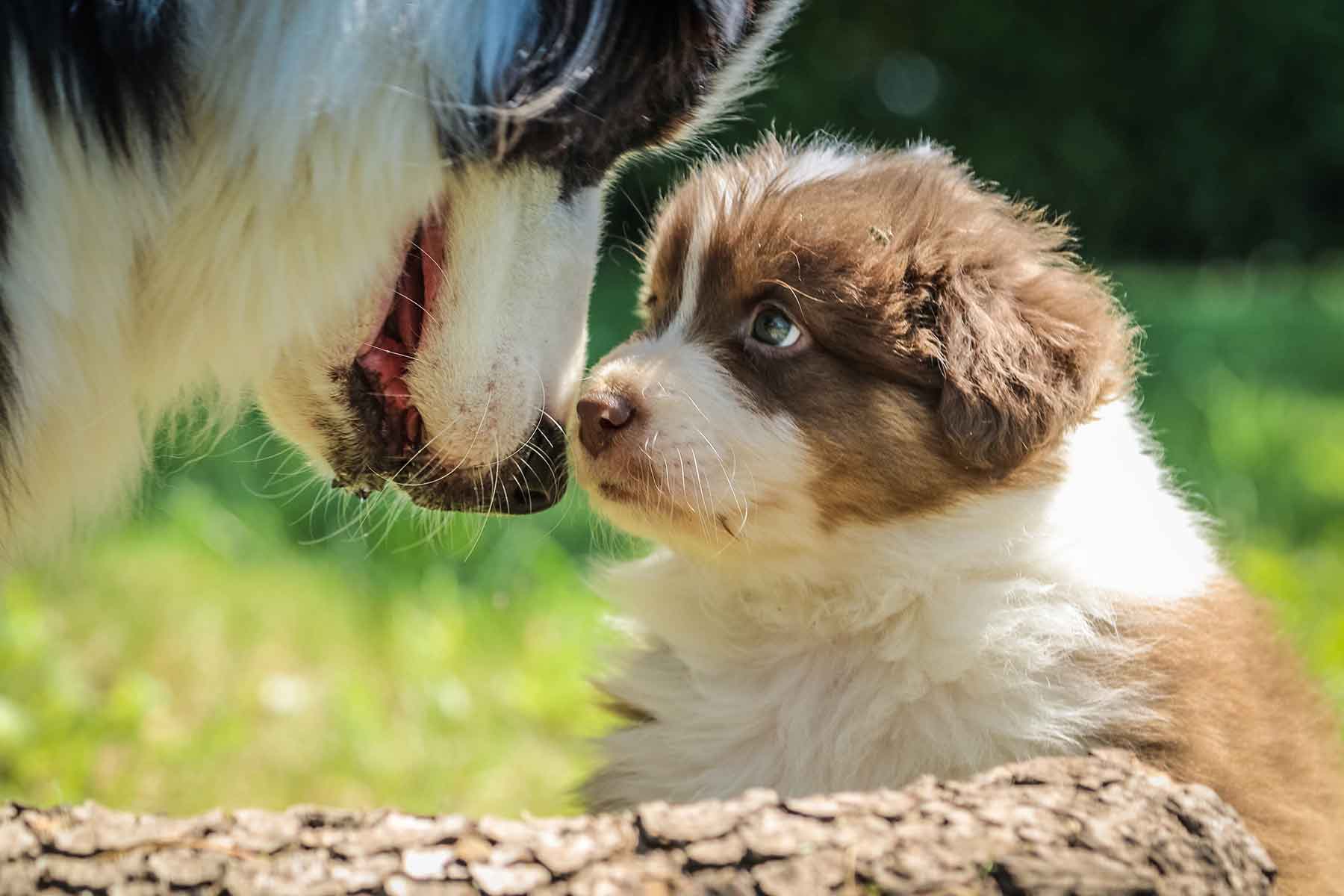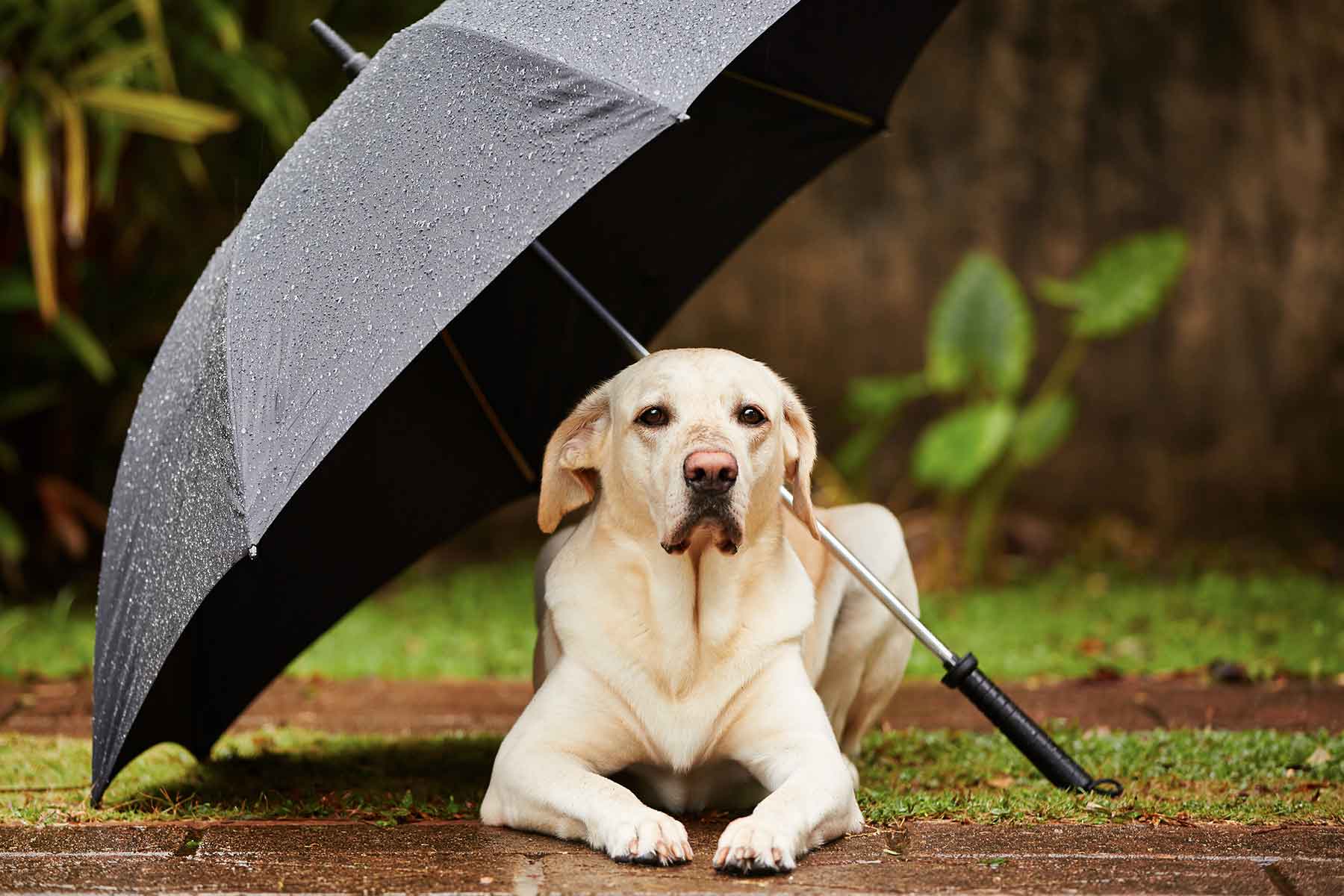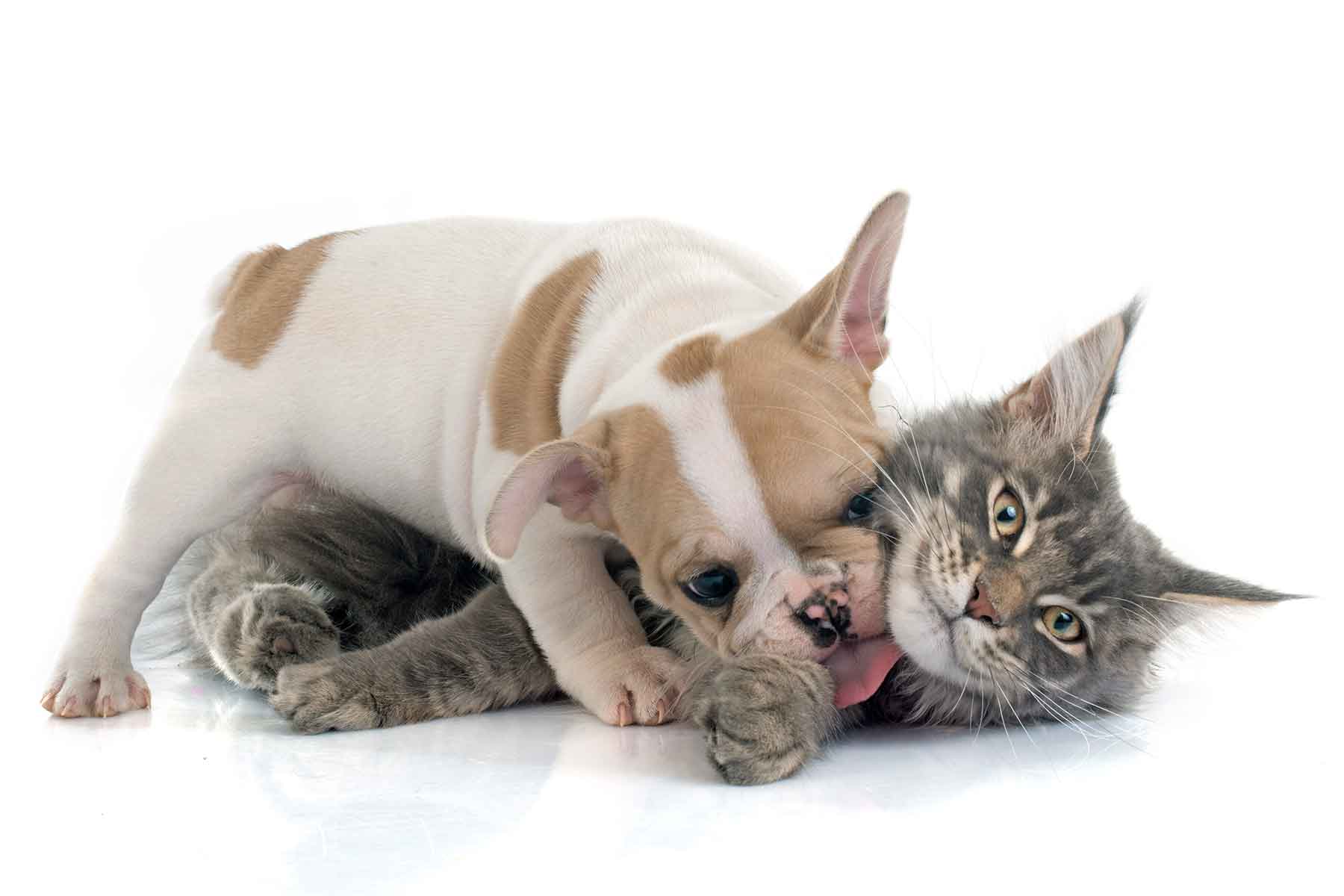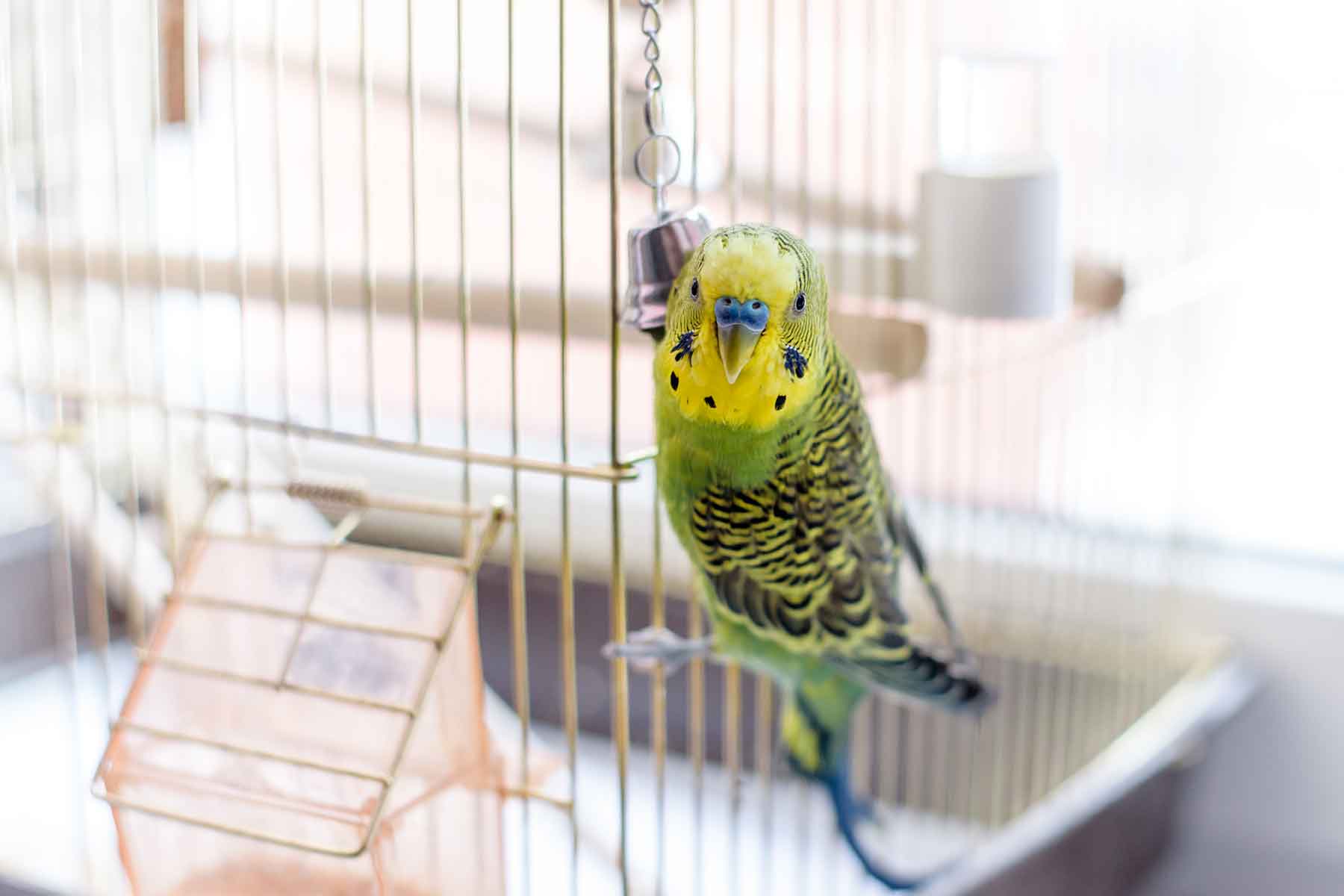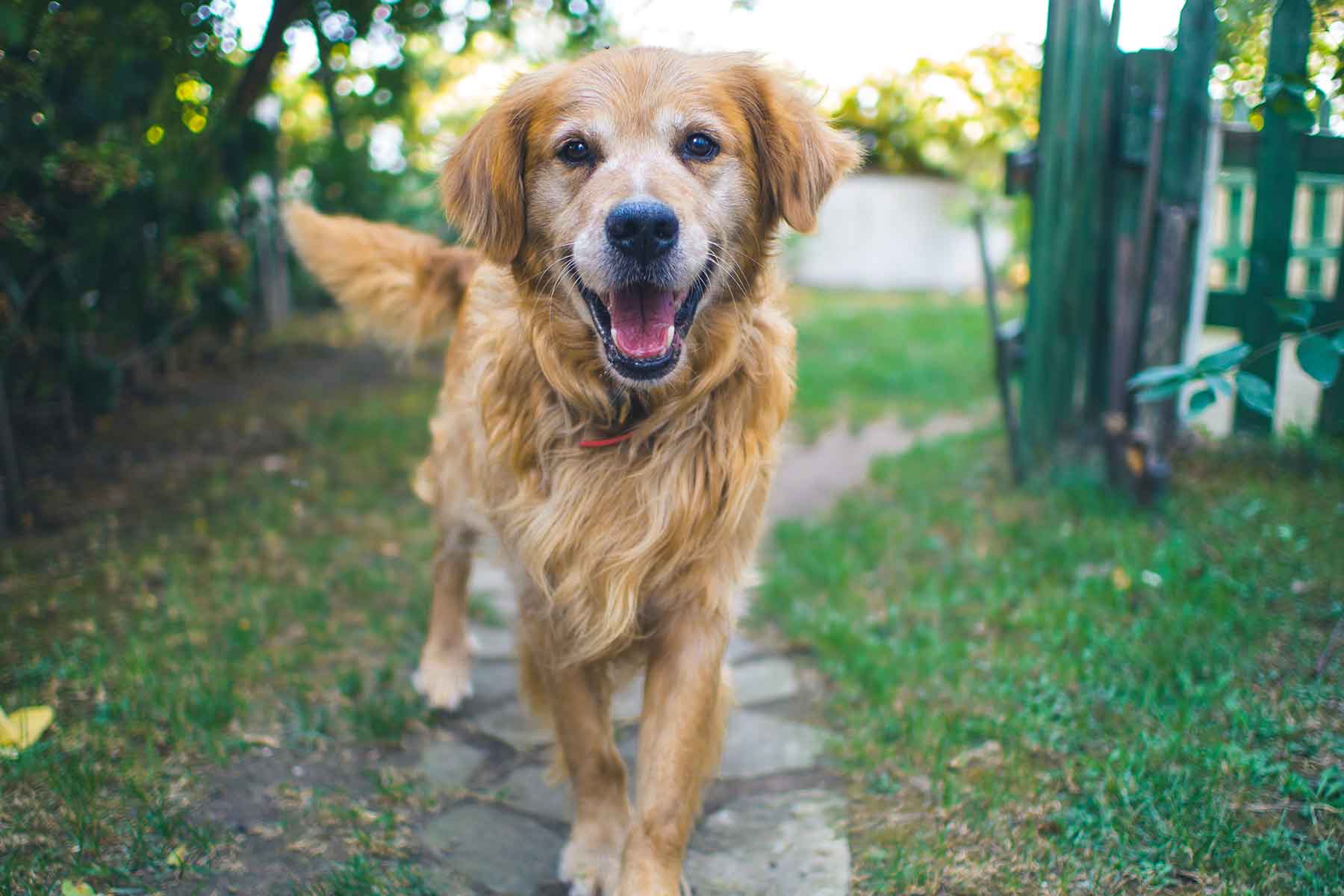Aggression or reactivity in dogs is the most serious, dangerous and one of the most common behavioural problems that dog owners may need to deal with, and sadly, a leading cause of euthanasia in our pets.
The best prevention is by socialising animals to feel comfortable around people and other animals in as many environments and contexts as possible.
In order to treat the problem effectively, it is necessary to identify why the dog becomes reactive by finding out what the underlying emotional state and motivation of the dog is. It is not helpful to label a dog “aggressive” without knowing why or when.
Almost all reactive behaviour is due to fear or anxiety. It occurs in situations where the dog feels uncomfortable. Reaction is a valid form of communication and is really no different to when people might raise their voice at each other, it signals to the other party that the aggressor is not happy and the situation needs to change. Reactive behaviour is a “distance increasing” signal and is an attempt to tell the threat to “please go away”. Dogs cannot use verbal or hand gestures and so they rely on body language. Many dogs who are reactive are doing so because their normal more subtle body language has not been acted upon eg the dog might be showing signs that they are uncomfortable and want to withdraw such as turning head, averting gaze, licking, lips, yawning, stiffening, cowering etc. When the threat ignores these signals (or does not notice them) dogs will escalate to lunge out or bark to get their message heard. When a dog learns it needs to use these techniques to get a response then the problem will often become worse.
NOTE: Reactive behaviour is NORMAL in many contexts as a form of communication. However, some dogs who show these signs are abnormal in that they are unwell, are unable to accurately read or process social cues or have underlying anxiety based mental health disorders and their brain chemistry is abnormal. These dogs need evaluation and treatment by a behavioural veterinarian.
Why your dog may be reactive
Types of reactive behaviour include those discussed below. It is important to note that all types (except for predatory aggression) are associated with a negative emotional state for the dog and are unpleasant and inherently aversive.
Underlying medical cause
Some diseases can cause reactive behaviour. Thyroid dysfunction, metabolic disease, liver / kidney disease, cancer or neurological disease such as seizures among others can cause reactivity. This is why it is imperative for any animal showing reactive behaviour to first be examined by a veterinarian – not a trainer.
Pain / discomfort
When an animal is painful or uncomfortable it will be irritable, intolerant and more reactive or defensive. Common examples are arthritis, dental disease, urinary tract infection, itchy skin.
Maternal
Normal for mothers guarding their puppies
Play
Some dogs who have not been well socialised may escalate to very rough play and inappropriate aggression when playing.
Possessive
This is called “resource guarding” and occurs when a dog is trying to protect something it values from being taken away such as food, a bone, a toy, a resting place or a person. This is due to underlying fear/anxiety/insecurity.
Territorial
This is seen when a dog reacts to unfamiliar dogs/people who enter their property. This can be normal within reason, and is bred for in some guarding breeds. However, technically, territorial aggression is still rooted in fear/anxiety of the unknown and is an attempt to send the scary threat away. Dogs who display territorial aggression may show a more confident body posture and may not appear fearful.
Redirected
This occurs when a dog reacts to a stimulus and becomes aroused and reactive but cannot get to the thing that has incited the reactivity or if it is interrupted. The dog may then accidently direct their frustration onto a nearby target such as another dog or their human companion. This happens because they are in fight and flight mode and are not thinking rationally but need an outlet for their emotions.
Predatory
This is normal in most breeds (stronger in dogs bred for hunting and less in dogs bred for guarding). It is a form of aggression which is distance decreasing instead of distance increasing and is therefore associated with a calm and positive state of mind – it is inherently rewarding for the dog. Most dogs will display predatory instincts and tendencies.
What can we do about reactive dogs?
Puppies must be well socialised with other animals during their socialisation period (3-12 weeks of age) for them to learn how to behave appropriately with other dogs.
Like most behavioural or emotional disorders we cannot CURE reactive beahviour but improve it with the aim to lessen its frequency or intensity and teach the dog more healthy and appropriate ways of responding to stressful situations, or ideally reduce the stress experienced in these situations.
Once a diagnosis of why the reaction happening is found, and medical/physiological causes ruled out, a positive behavioural trainer or behavioural vet can help treat reactiob using the 3 “Ms”. All 3 must be implemented together, one or 2 alone will not be sufficient.
Management: Reducing exposure to the triggering stimulus – protecting the patient from things which cause it to react. For example, if a dog is reactive to other dogs while walking on lead it should not be taken for walks where it may encounter other dogs until its behaviour and emotional reactivity has been addressed.
Medication: In patients whose reactivity is due to an anxiety or arousal disorder medication is a necessity. Without medication, dogs will never be treated effectively. Anxiety is a medical disorder resulting from abnormal levels of neurotransmitters in the brain and thus cannot be treated without correcting this (just like a diabetic animal cannot be treated without insulin). There are several medications available to treat anxiety.
(NOTE: there are no medications licensed to treat reaction and all medication used for this purpose is “off-label”. Your vet can discuss this with you in more detail).
Modification: Behavioural (or perhaps better termed “emotional”) modification is all about making the dog feel better about the stimulus or context so that it does not feel the need/motivation to act reactively. Several scientific techniques can be used such as desensitisation, counter-conditioning, response substitution, and classical and operant conditioning.
A few words on punishment
Dogs who are reactive must NEVER be punished! Punishing dogs for being reactive is punishing their reaction to being frightened and uncomfortable and so it will only make them more scared. It does nothing to treat the cause of why they act reactively. Punishing reactive dogs has been proven to worsen the condition and anxiety and destroy the bond between dog and human. Remember, reactive dogs are fearful dogs and we need to find out why and make them feel less scared to reduce the behaviour.
When people punish dogs they are usually trying to teach them what is right and wrong but dogs are not moral creatures and to them there is no “right and wrong” just “good and bad” in terms of consequences of their actions to themselves. There is a long list of reasons why punishment should never be used such as:
- it worsens anxiety and reactive behaviour
- it does nothing to address the underlying emotion or help the dog
- it can inhibit the early warning signs of reaction such as growling leading a dog to escalate its reaction and bite more readily
- it destroys the bond and trust between dog and human
- it does nothing to teach the dog how it should be behaving
It is worth mentioning that for punishment to be effective it must fulfil 3 criteria: it must be IMMEDIATE (occur within half a second of the undesirable behaviour), CONSISTENT (happen EVERY time the behaviour occurs – which must include when the owner is absent) and it must be sufficiently AVERSIVE (unpleasant enough to stop the behaviour permanently after 1 or 2 manifestations). If these criteria are not fulfilled then by definition it is not punishment but ABUSE. Needless to say, proper punishment is almost impossible to do correctly and fairly, and there are always more humane ways of altering behaviour. Punishment is almost never recommended or needed for any animal in any circumstance.
NOTE: THERE IS NO SUCH THING AS DOMINANCE IN DOGS! DOGS WHO ARE ACTING REACTIVELY ARE NOT BEING DOMINANT, RATHER THEY ARE FEARFUL OR ANXIOUS.

